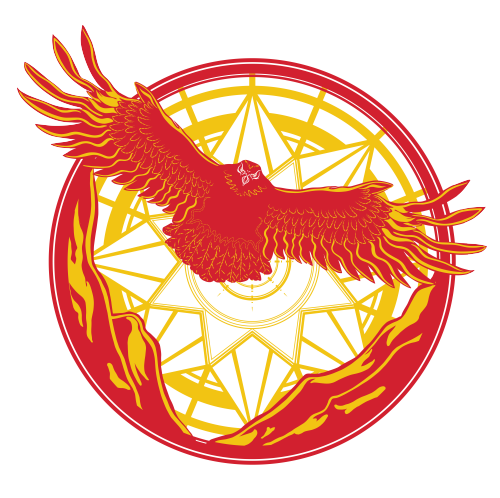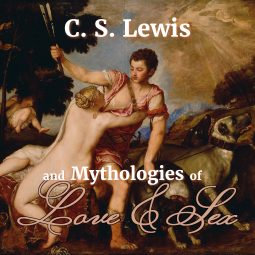INSTRUCTORS:
This course explores some of the great mythologies of love that provide a background to today’s culture. Sketched out along the twin paths of C.S. Lewis’ The Four Loves and a chronological development of the idea of romantic love, we explore foundational stories of love, sex, fidelity and betrayal, romance, loss, marriage, and divine and devotional love.
This treatment of love and sex has six movements. In the prologue we ask questions about the conversations of sex and love today, we begin in the civilizational nursery by looking at some of the ideas of love in ancient Mediterranean cultures. As we move into the first chapter, we look at the emergence of Greek and Jewish understanding of love, and the Christian idea of agape, or unconditional love.
In the second chapter, we will see the development—and in some cases a recovery—of the myth of romantic love in Medieval and Renaissance Europe, including themes of devotional, courtly, forbidden, and erotic loves, as well as the forms of storytelling that blended them all. Once love stories have shed their allegorical undertones, Shakespeare is an accessible starting point to discuss the place of romantic love in culture. Shakespeare is in this way the inventor of the modern romantic tradition, though his work suggests an inversion of that tradition. While Goethe captures romantic love in all its poignancy, we see Jane Austen’s inversive mind expand the theme, and turn to the four loves with a powerful cultural treatment in Pride & Prejudice.
In chapter three we turn to familial loves. Perhaps no more rapid change in relationships has come in the family loves, particularly those between parents and children. We will read pieces that suggest that the reassertion of this parental love makes for new problems as romantic, religious, and vocational love sit in uncomfortable tension with that earliest of all loves. Problematizing parental love, then, serves as an opportunity to return to the messages and stories of love in culture today.
Chapter four’s consideration of friendship love leaves us in a difficult situation. Though popular culture is beset with friends on facebook and television, the deep traditions of friendship are largely lost to us. So we turn to some children’s literature to discuss this almost forgotten love.
As an epilogue to the class, we ask some questions about love and culture today. Are we really in a renewed romanticism? What is love in a digital age? What happens when love fails—or when the mythologies of love fail? Which is the most important of the loves? We will close by returning to an ancient theme of “calling,” meant to open questions as to where the reader sits in the world.
Weekly Schedule
This class includes pre-recorded lectures by Dr. Brenton Dickinson. Students will meet once a week for a 1-hour discussion session as assigned.
Course Schedule
Prologue: Who Did Write the Book of Love?
Week 1: “Art is a Lie Which Makes us Realize the Truth”
- Read: Tolkien, “Mythopoeia,” Genesis 1 – 3, Lewis, The Four Loves
- Watch: The Princess Bride
- Recommended: Tolkien, “On Fairy-Stories,” Lady in the Water, Mr. Magorium’s Wonder Emporium, 1980s Brat Pack films
Week 2: Introduction to Love, Religion, and Mythology
- Read: Song of Solomon; Lewis, The Four Loves
- Recommended: The Epic of Gilgamesh; Homer, The Iliad, The Odyssey; the Cupid and Psyche cycle in Books 4 – 6 of The Golden Ass
Chapter One: The Emergence of Agape
Week 3: Greek and Christian Inventions of Love
- Read: Plato, “The Symposium”; 1 John, Bible Handout, Patristics Handout
- Recommended: Harry Potter
Chapter Two: The Establishment (and Inversion?) of Eros
Week 4: Form, Flesh and Fidelity: The Art of Courtly Love
- Read: Selections from The Letters of Abelard & Héloïse; Patristic and Medieval Writings handout; Selections from Lewis, The Allegory of Love
- Recommended: Malory, Le Morte d’Arthur; Andreas Capellanus, The Art of Courtly Love
Week 5: Shakespeare: The Invention (and Inversion?) of Romantic Love
- Read: Shakespeare, Romeo and Juliet, Sonnets handout
- Recommended: Baz Luhrmann’s Romeo + Juliet
Week 6: Goethe and the Romantic Tradition
- Read: The Sorrows of Young Werther
- Recommended: Orlando
Week 7: Jane Austen and the Change of the Heart
- Read: Austen, Pride & Prejudice
- Recommended: Richardson, Pamela; Morris, The Well at the World’s End
Chapter Three: The Problem of Storge
Week 8: The Forbidden Love of Asher Lev
- Read: Potok, My Name is Asher Lev
Week 9: When Love is No Better than Hate
- Read: Lewis, Till We Have Faces
- Recommended: Lewis, The Great Divorce
Chapter Four: Can We Recover Philia?
Week 11: Where did Friendship Go?
- Read: Paterson, Bridge to Terabithia
- Recommended: King, The Body, Stand by Me
Epilogue: Love and the Cosmos
Week 12: Plastic Bodies and Broken Hearts: Myths of Love Today
- Read: Coelho, The Alchemist
- Watch: Lars and the Real Girl, Easy A
- Recommended: Lewis, A Grief Observed
Texts
Most of these books are widely available in local libraries or in inexpensive editions. Any edition of the books is fine. Translation in parentheses; it is okay to choose a different translation. Additional texts may be provided as handouts/downloads in class. The Amazon links are provided for convenience only, and we encourage students to purchase texts wherever they wish.
Required Texts
- C.S. Lewis, The Four Loves (1960)
- Plato, The Symposium (4 th c. BCE, Christopher Gill)
- Selections from C.S. Lewis, The Allegory of Love (1936)
- Selections from The Letters of Abelard & Héloïse (12th c., William Levitan)
- Johann Wolfgang von Goethe, The Sorrows of Young Werther (1774, Michael Hulse)
- C.S. Lewis, Till We Have Faces (1956)
- Chaim Potok, My Name is Asher Lev (1972)
- Katherine Paterson, Bridge to Terabithia (1977)
- Paulo Coelho, The Alchemist (1988)
Required Films
- The Princess Bride (1987)
- Baz Luhrmann’s Romeo + Juliet (1996)
- Bridge to Terabithia (2007)
- Stand by Me (1986)
- Lars and the Real Girl (2007)
- Easy A (2010)
Suggested Works
- Selections from Andreas Capellanus, The Art of Courtly Love in The Broadview Anthology of British Literature: Volume 1: The Medieval Period (Ed. Joseph Black et al, 2 nd ed., 2009)
- Virginia Woolf, Orlando (1927)
- J.R.R. Tolkien, “On Fairy-Stories” (also in Tree and Leaf, The Tolkien Reader, and Essays Presented to Charles Williams, ed. C.S. Lewis)
- J.R.R. Tolkien, The Lord of the Rings (1955-56)
- C.S. Lewis, The Great Divorce (1945)
- C.S. Lewis, A Grief Observed (1961)
- Stephen King, The Body (1982) (also in Different Seasons)
Course History
This course has been offered in the following semesters.
| Semester | Preceptor(s) |
|---|---|
| Fall 2019 | Dr. Brenton Dickieson |
| Summer 2016 | Dr. Sara Brown & Liam Daley |
Course Artwork
Course artwork was created by Alicia Fox-Lenz.


